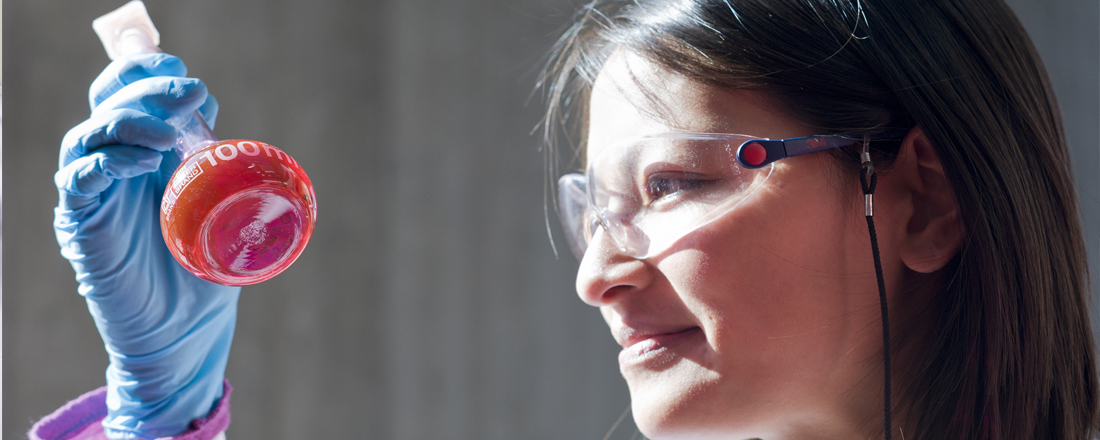
Welcome to the homepage of the master’s programme Polymer Science
Meeting the technological and related social challenges of the 21st century in areas such as mobility, energy, information, safety, and medicine requires the investigation of synthetic polymers and biomacromolecules and the construction of new multi-functional polymers with a view to complex structures.
Systems based on macromolecular materials are essential for key technologies and provide the means to ensure communication, comfort, health, and quality of life in society, both at present and in the future. The extremely broad spectrum of polymers ranges from components for the automotive and aircraft industries to new data storage media in communications technology to special polymers used in medicine, such as in syringes and vessel materials, sensors for medical diagnostics, structures to carefully release active ingredients, in addition to new biodegradable polymers for tissue and organ reconstruction.
A distinguishing feature of the University of Bayreuth is the profile it has developed in research and teaching by defining priorities known as the “focus areas”. The focus area Polymer & Colloid Science has been a successful research priority since 1975, achieving visibility in Germany and beyond. The concentration of a number of different research groups working in this area in chemistry, physics, and engineering is unusual and contributes to the University of Bayreuth’s unmistakable profile. Bundling resources into well-defined interdisciplinary subject areas provides a basis for attractive training opportunities as well as leading modern research that is internationally competitive.
The master’s programme Polymer Science is taught in English.
Proof of a B2 level or an equivalent qualification in English is necessary to be admitted. Proof of German language skills of at least level A1 by the end of the second semester at the latest. Detailed information can be found on the English-language master’s program website.
Polymer Science (MSc.)
The master’s programme Polymer Science
Concept of the master’s programme
The programme covers all the key areas of modern polymer science: polymer synthesis, polymer analytics, polymer and colloid chemistry, polymer physics, polymer processing, polymer technology, catalyst design, biomacromolecules, and biomaterials. Students are introduced to current research topics at an early stage. They develop their basic and practical skills in all fields of polymer science with the benefit of small teams and personal contact to their lecturers.
Who is a good fit for the programme?
The master’s programme Polymer Science is geared to students who are interested in issues relating to materials science and the natural sciences, who want to work on a pioneering class of materials, and who hope to one day take on a high level of responsibility in a company, research institute, or higher education institution. Admission requirements for the master's programme include a first cycle degree (Bachelor of Science) in chemistry, polymer and colloid chemistry, biochemistry, physics, materials science, or a related discipline.
Doctoral research and career prospects
The doctoral programme Polymer Science offered by the Bayreuth Graduate School of Mathematical and Natural Sciences (BayNAT) gives successful graduates of master’s programmes the opportunity to pursue a doctoral degree. Especially talented students are given the opportunity to take part in the elite degree programme Macromolecular Science parallel to the master’s or doctoral programme.
Graduates of the master’s programme Polymer Science – especially those who go on to complete a doctorate – are particularly sought after in the chemical industry and related industrial sectors. They are well-positioned to work in a variety of fields for large companies, SMEs, universities, and non-university research institutes. After earning their doctoral degrees, graduates are qualified to pursue a range of interesting leadership positions in Germany and abroad.
